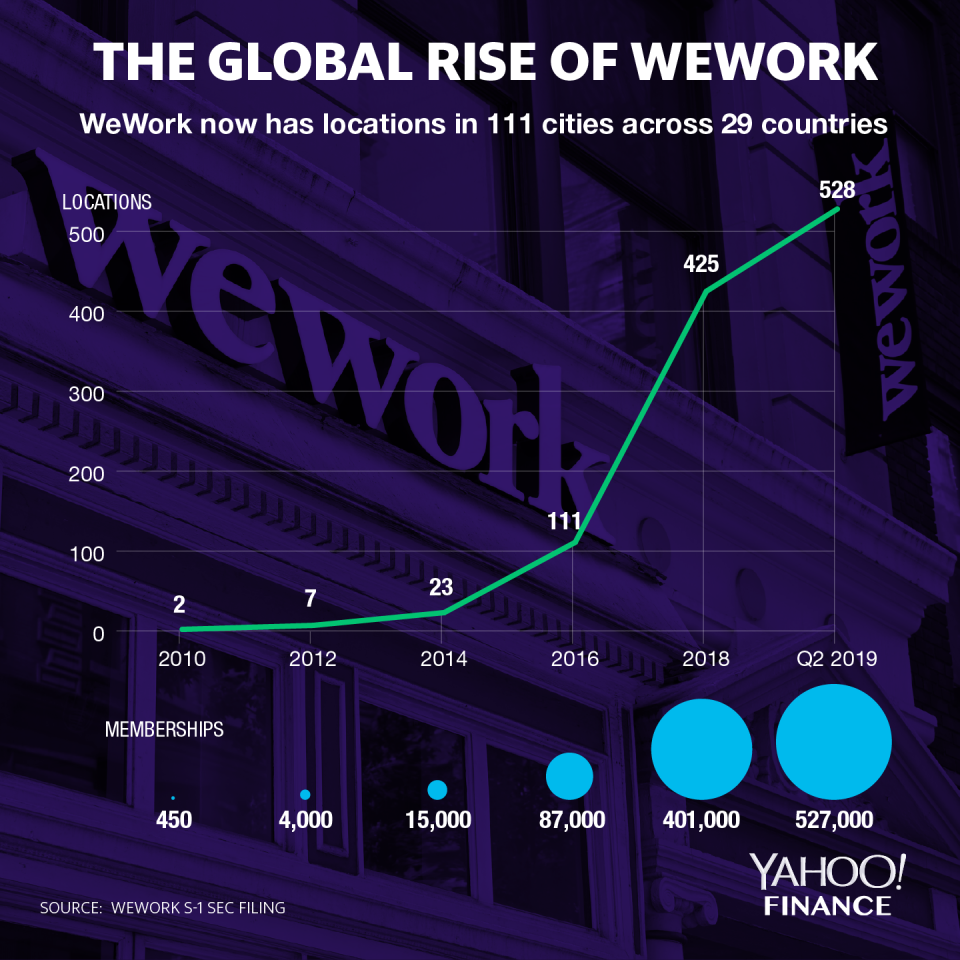WeWork is 'poster child' for what's failing in IPO market: Dan Ives
WeWork’s IPO preparations have been a rollercoaster, and Friday brought another surprising bit of news.
Not long after Softbank valued the company at $47 billion, it was reported that WeWork would be seeking a valuation between $10 and $12 billion, a big discount to the $47 billion valuation it achieved in January – and that likely has investors spooked. On top of the lower valuation, the company’s S-1 filing changed its corporate governance structure, including limiting the voting power of CEO Adam Neumann, as well as removed a clause that allowed Neumann’s wife, Rebekah, to choose his successor should he step down.
For some investors, this is a sign to steer clear of the company’s impending public offering.
“Well, if you take a step back, it's really what's broader going on in the IPO market, and I think this all started with Uber and Lyft,” Dan Ives, an analyst at Wedbush Securities told Yahoo Finance. “From a valuation perspective,” Ives said, the company’s steep losses are a red flag for investors. “I think WeWork's really become the poster child” for problematic tech IPOs, he said.
It’s been a rough year for IPOs, with Uber, Lyft, and Slack’s (WORK) stock — all one-time unicorns — and all on steady declines since going public. Investors are pumping capital into companies whose business models are foreign and not proven in the public markets, as evidenced by Uber’s (UBER) billion-dollar losses quarter after quarter. Another example: Slack recently posted losses more than 10 times larger than before its IPO.
“It's not just WeWork,” Ives said. “It's others that are viewing this because it just speaks to what we're seeing in the IPO market. It's definitely a fork in the road.”
“You see some of these names like Zoom (ZM), Beyond Meat (BYND) – strong business models. You see the stocks going accordingly. Others, especially if you look at Uber and Lyft (LYFT), those have really become the poster child for what we're seeing,” he said.

WeWork’s business model is hinged on a fickle business — real estate. It also uses short-term leases, usually no longer than 15 months, for its spaces, creating constant customer turnover. The company hasn’t shown that it has solved any of its problems, posting yearly losses of $1.9 billion in 2018 and hourly losses of $217,000.
WeWork’s IPO roadshow kicks off next week in anticipation of its IPO on Sept. 23.
“They've got to prove to investors that, ultimately, there is a path here not just to profitability but growth. When you look at a lot of these other issues, I think the tolerance that you're seeing in this market is reduced in terms of what investors are willing to kind of look past,” Ives said. “And that's what we've seen in a lot of these other IPOs is that now you're on the other side of the cycle. I think investors are starting to basically say right here, like, they're not going to just invest based on sort of a hope and a prayer.”
Ashley is a Production Assistant for Yahoo Finance. Follow her on Twitter @actuallynelson
Read more:
Why the dismal performance of super-unicorns will sink the We Company’s IPO
WeWork's business model is being undermined by a profitable player
WeWork 'has to give us a valuation that's reasonable': IPO expert
Read the latest financial and business news from Yahoo Finance
Follow Yahoo Finance on Twitter, Facebook, Instagram, Flipboard, SmartNews, LinkedIn, YouTube, and reddit.

